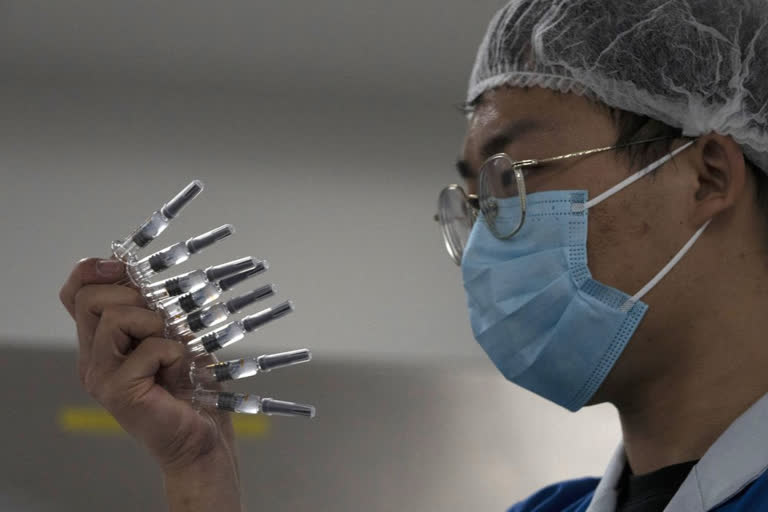Taipei: Provincial governments across China are placing orders for experimental, domestically made coronavirus vaccines, though health officials have yet to say how well they work or how they may reach the country’s 1.4 billion people.
Even without final approval, more than 1 million health care workers and others in China who are deemed at high risk of infection have received experimental vaccines under emergency use permission. Developers have yet to disclose how effective their vaccines are and possible side effects.
China’s fledgeling pharmaceutical industry has at least five vaccines from four producers being tested in more than a dozen countries including Russia, Egypt and Mexico. Health experts say even if they are successful, the certification process for the United States, Europe, Japan and other developed countries might be too complex for them to be used there. However, China said it will ensure the products are affordable for developing countries and has been actively pursuing deals across the world.
On Sunday, 1.2 million doses of the Chinese company Sinovac’s vaccine arrived in Indonesia, the government said.
“We are very grateful, thank God, the vaccine is now available so that we can immediately curb the spread of the COVID-19 disease,” President Joko Widodo said.
Read:|'Protesters outside UK Indian mission broke Covid rules'
Within China, so far only one developer, China National Pharmaceutical Group, known as Sinopharm, said in November it applied for final market approval for use of its vaccine. Others have been approved for emergency use on people deemed at high risk of infection.
“We must be prepared for large-scale production,” Vice Premier Sun Chunlan said during a visit Wednesday to developers, according to the official Xinhua News Agency.
Sun, who has as overseen much of the country’s response, visited one of Sinopharm’s Beijing subsidiary companies, Sinovac and a research lab under the National Medical Products Administration, a regulatory agency that approves medical products for public use.
The government has yet to say how many people it plans to vaccinate. Sun said plans call for vaccinating border personnel and other high-risk populations this month.
The companies are using more traditional techniques than Western developers.
They say unlike Pfizer’s vaccine, which must be kept frozen at temperatures as low as minus 70 degrees Celsius (minus 94 Fahrenheit), theirs can be stored at 2 to 8 C (36 to 46 F). The Chinese producers have yet to say how they might be distributed.
Health experts question why China is using experimental vaccines on such a vast scale now that the outbreak is largely under control within its borders.
